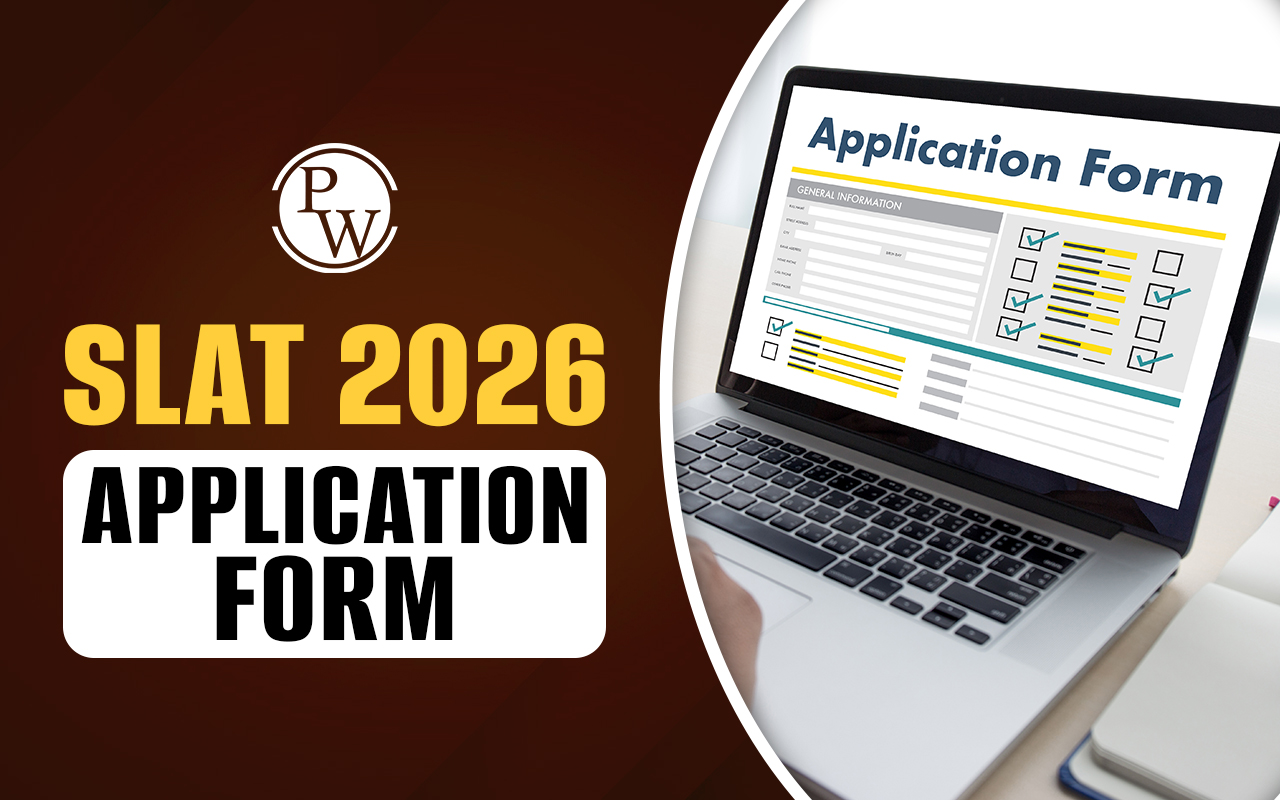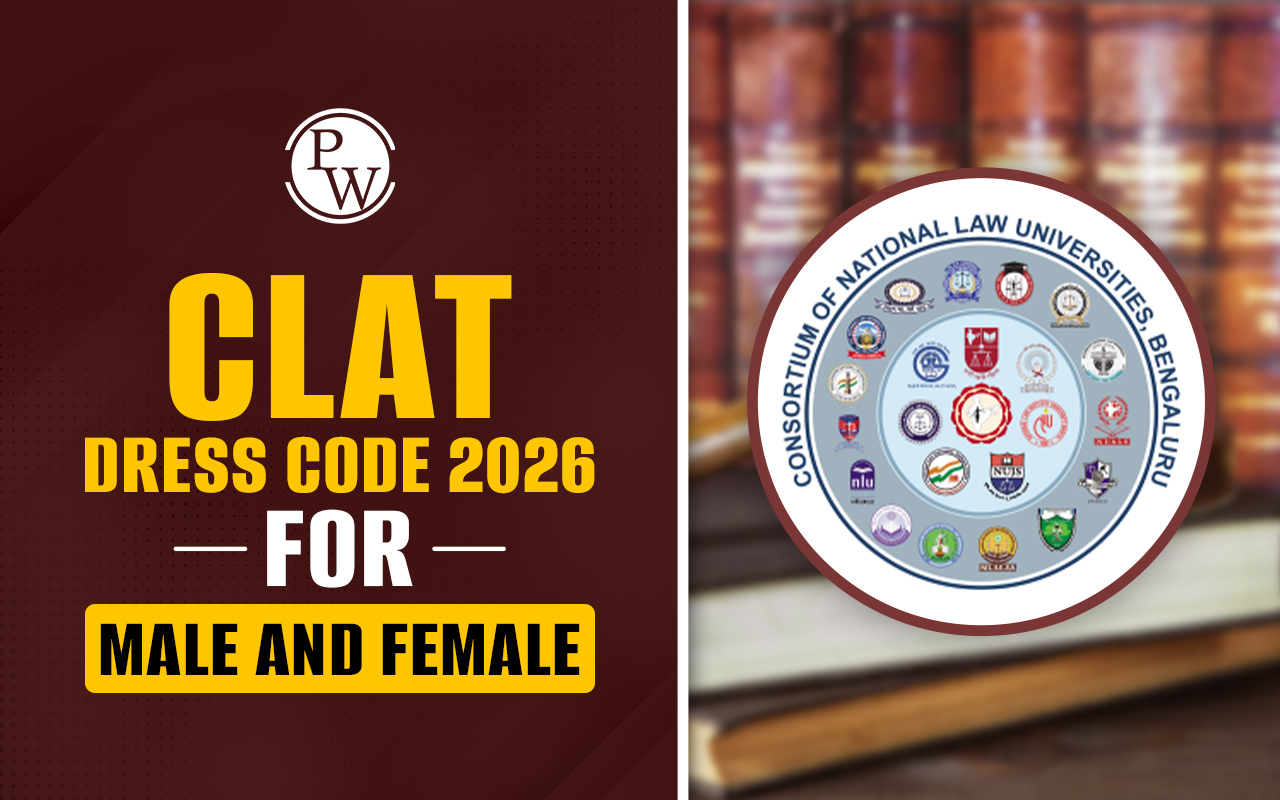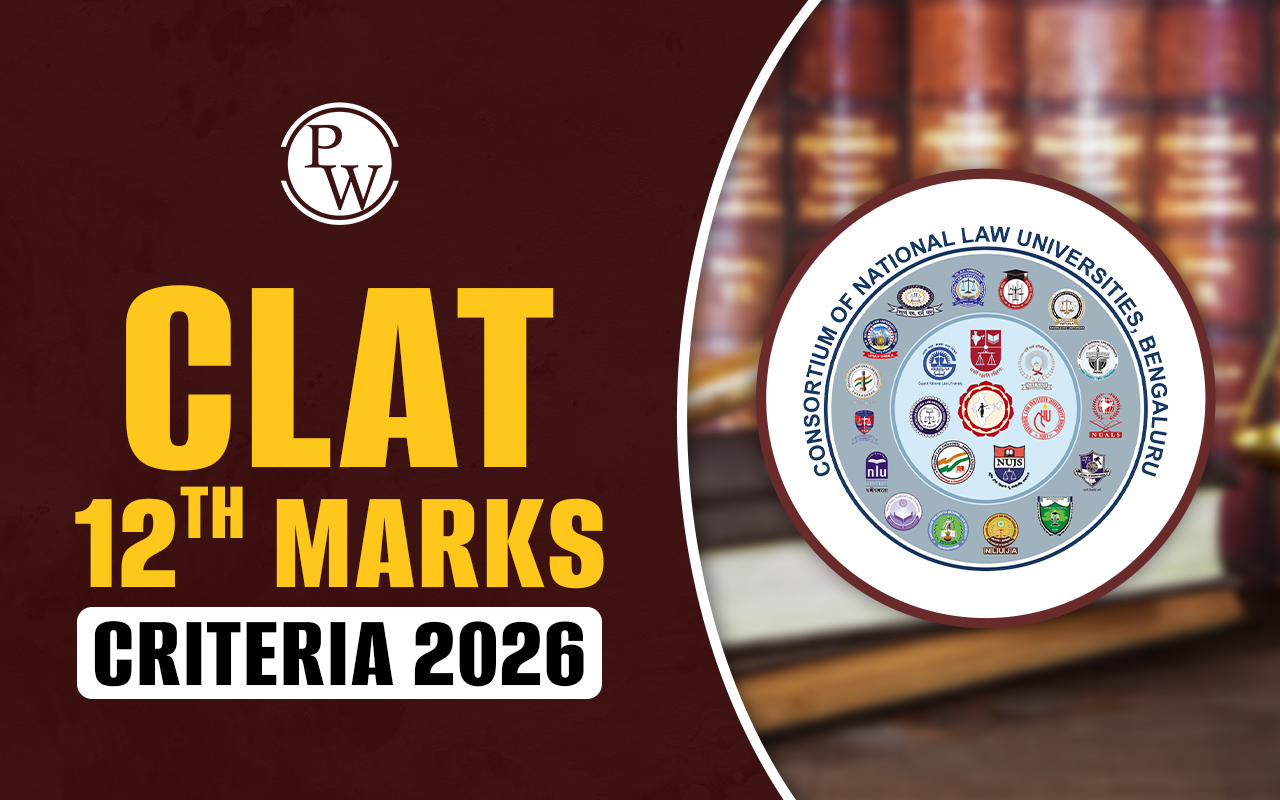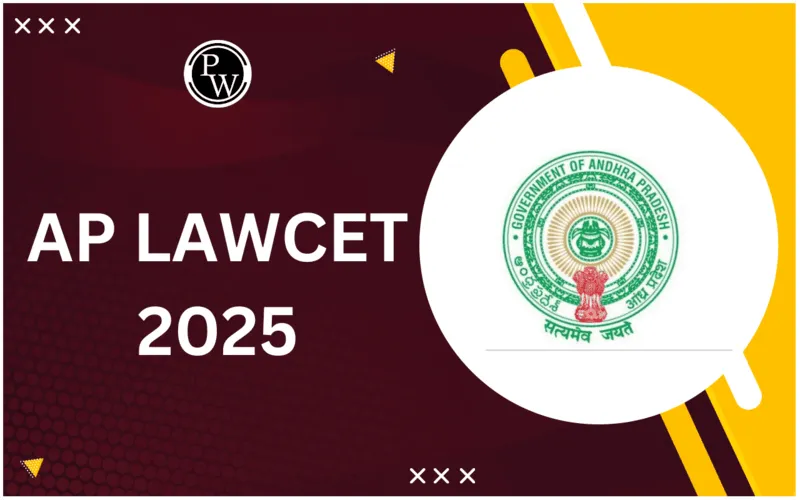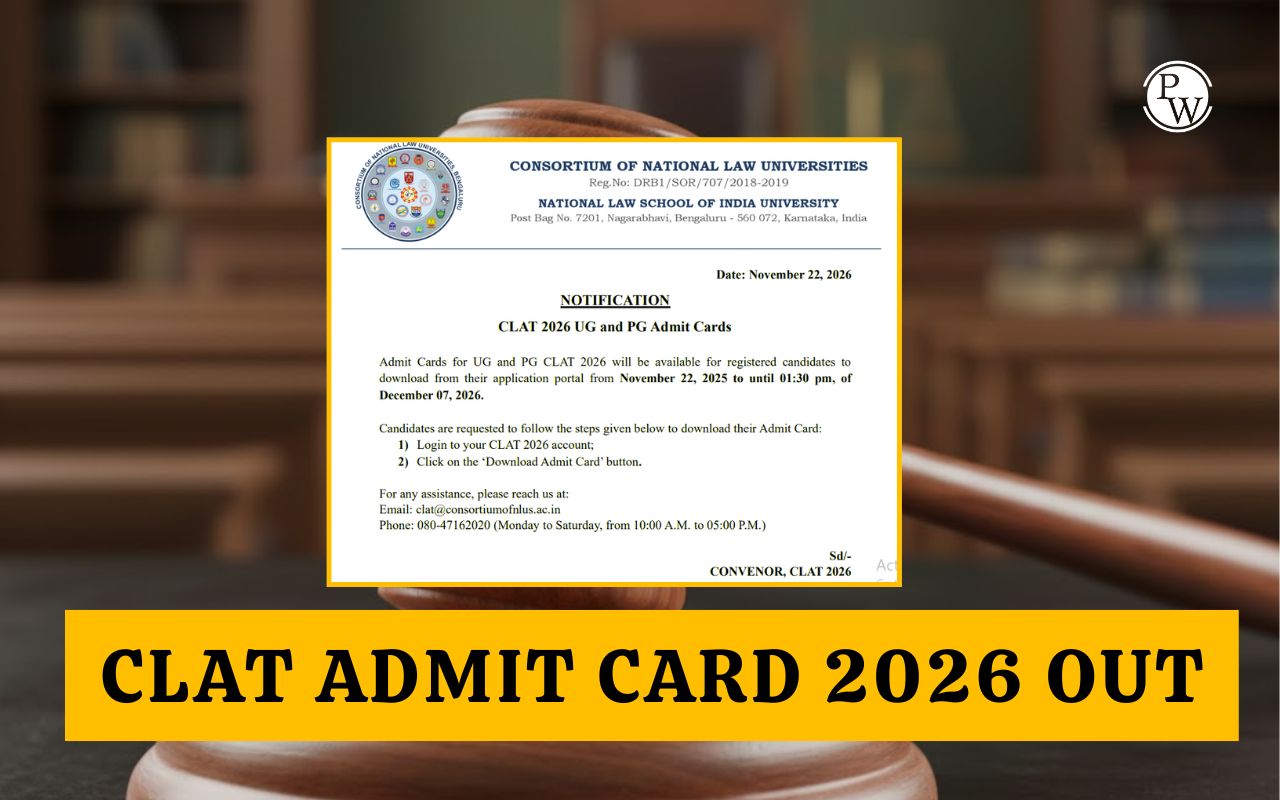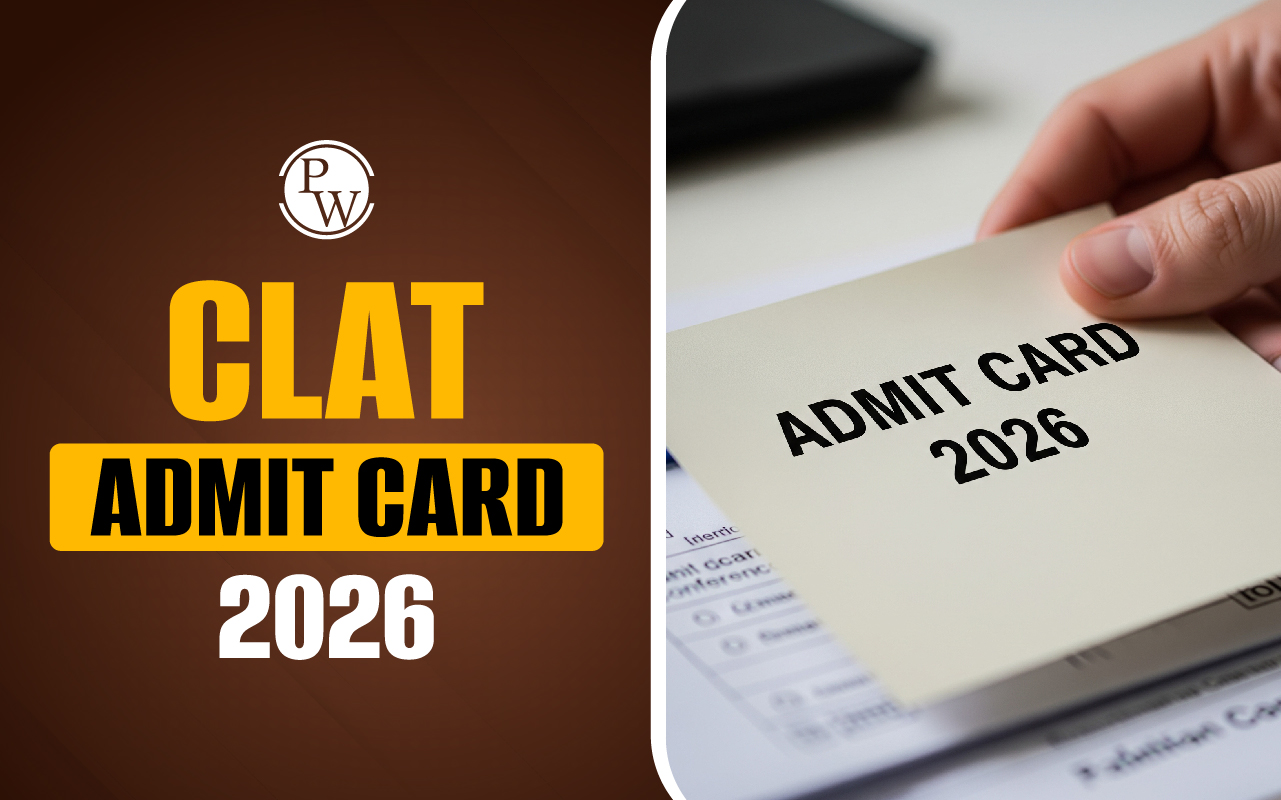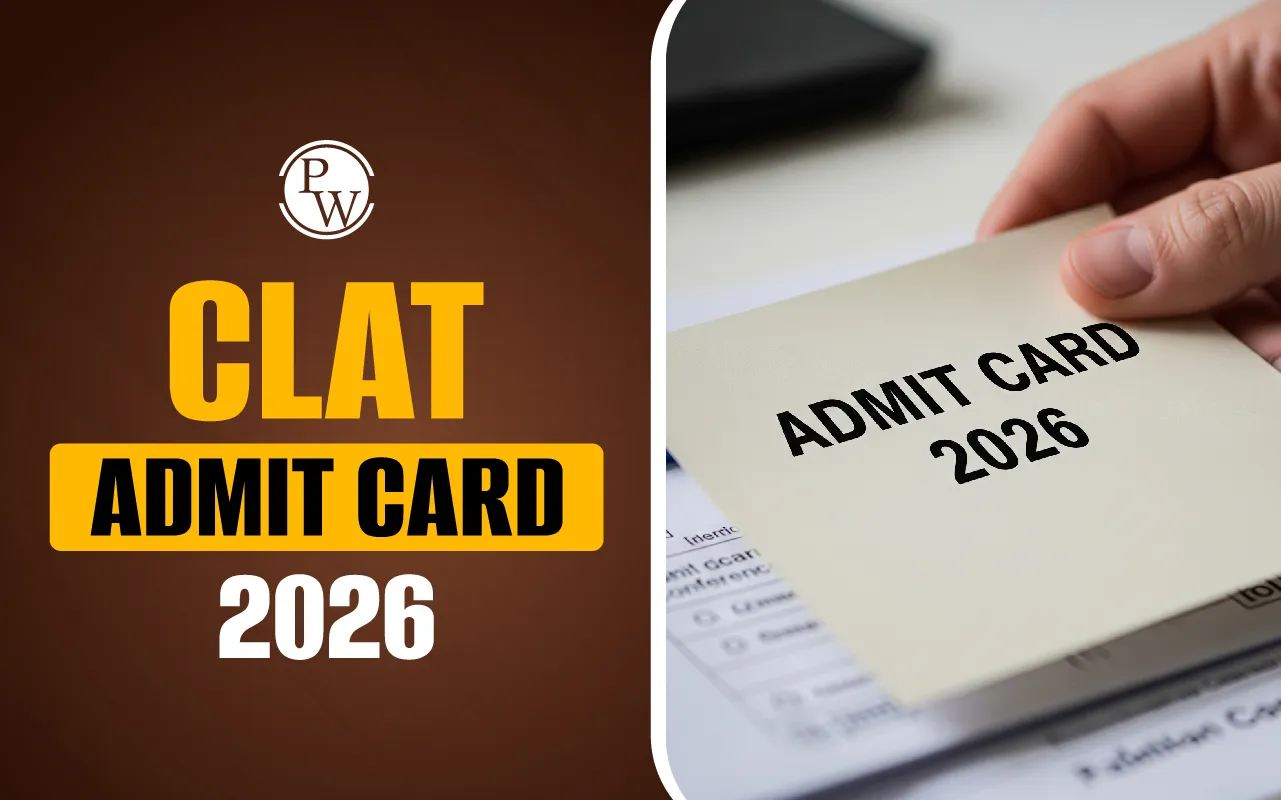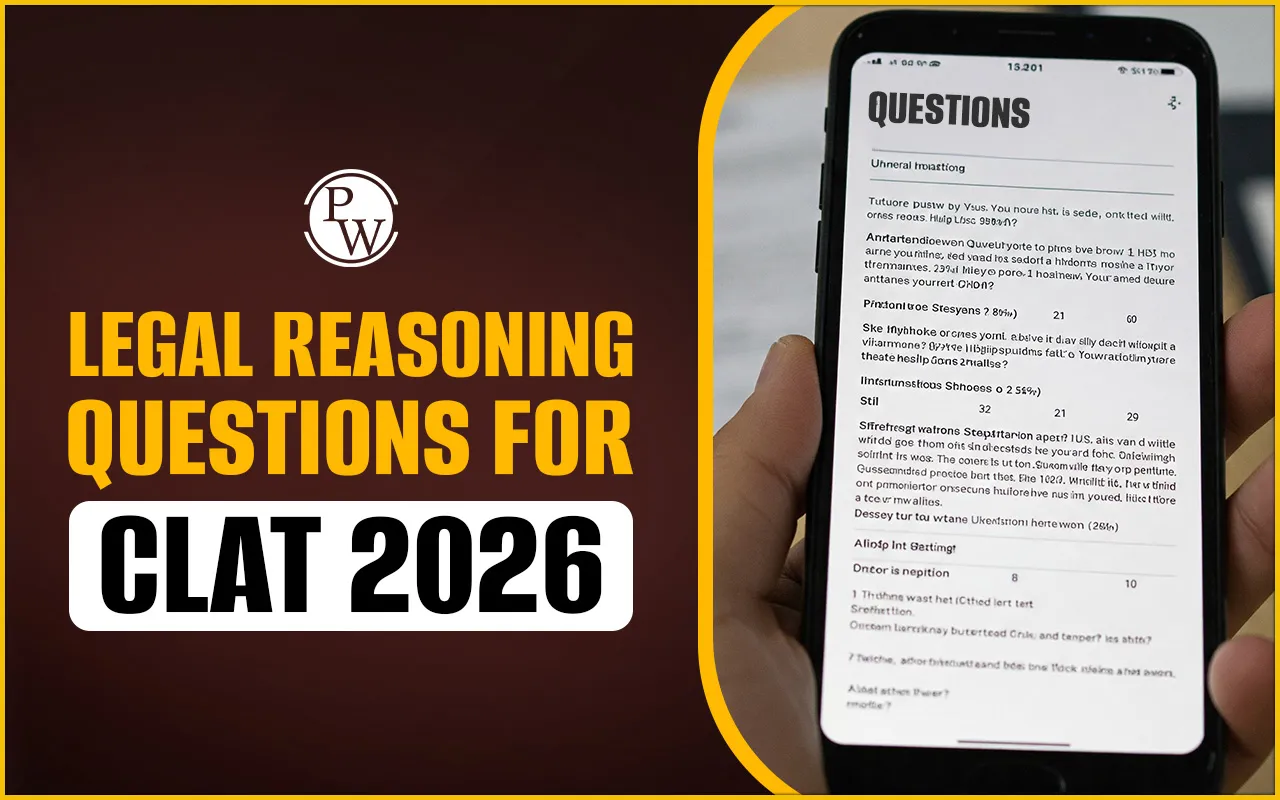
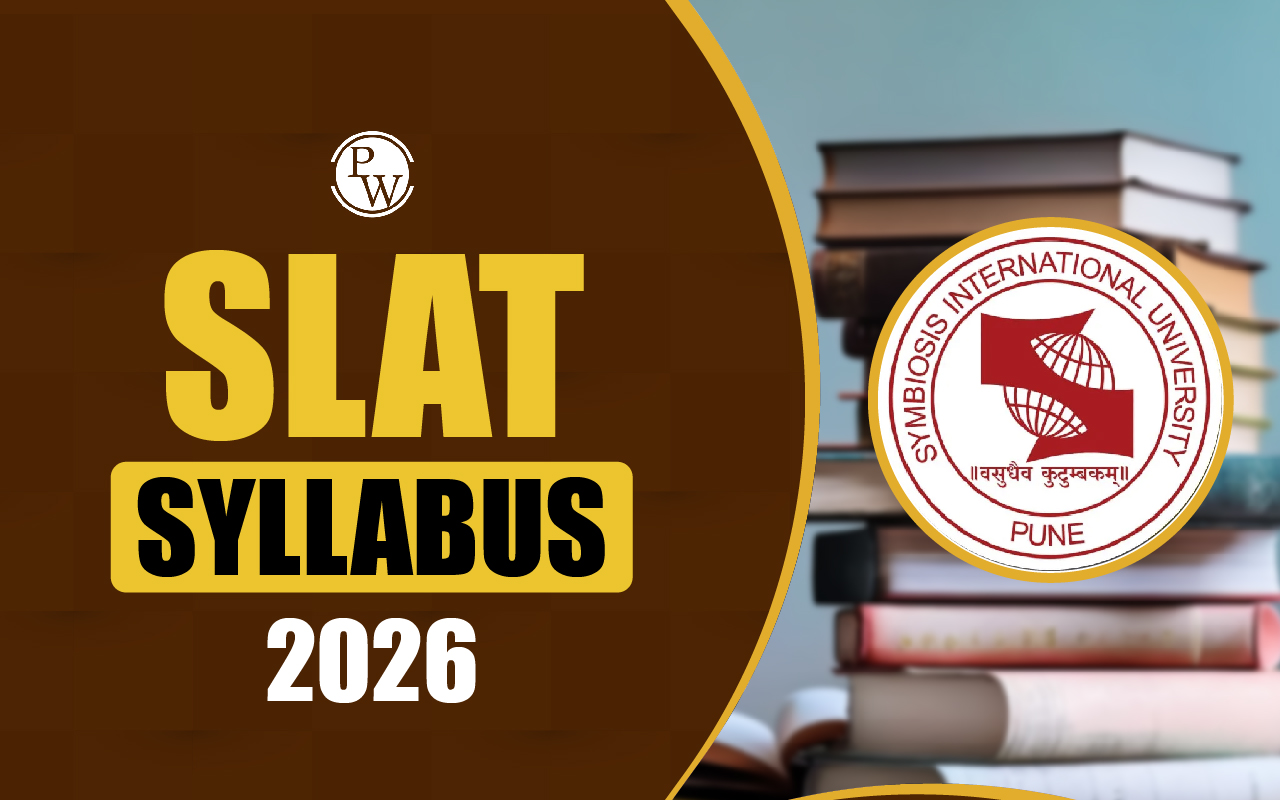
SLAT Syllabus 2026: The Symbiosis International (Deemed) University will prescribe the SLAT syllabus 2026 along with the official notification on its official website. The SLAT syllabus will break down the different sections according to the weightage in the exam. The SLAT syllabus includes five sections namely, logical reasoning, legal reasoning, analytical reasoning, general knowledge, and reading comprehension.
All sections have equal weightage and comprise 12 questions. SLAT 2026 will be conducted in 2 phases in December 2026. Understanding the SLAT syllabus 2026 extensively, candidates can calibrate their preparation based on the important topics asked in the exam.SLAT Syllabus 2026 Overview
The SLAT (Symbiosis Law Admission Test) 2026 is a national-level exam designed to evaluate candidates' aptitude for legal studies. The exam will be conducted in Computer Based Test (CBT) mode and consists of five distinct sections: logical reasoning, legal reasoning, analytical reasoning, reading comprehension, and general knowledge. Each section carries equal weightage, with a total of 60 questions to be completed in 60 minutes. The following table provides details of the distribution of questions along with marks.| Sections | Number of Questions | Marks |
| Legal Reasoning | 12 | 12 |
| Logical Reasoning | 12 | 12 |
| Analytical Reasoning | 12 | 12 |
| Reading Comprehension | 12 | 12 |
| General Knowledge | 12 | 12 |
| Total | 60 | 60 |
SLAT Syllabus 2026 for Logical Reasoning
The SLAT logical reasoning section will comprise 12 multiple-choice questions, covering a range of topics that test candidates' logical reasoning skills. The SLAT syllabus 2026 for logical reasoning focuses on evaluating the candidate's capacity to recognize patterns, analyze arguments, draw logical conclusions, and demonstrate rational thinking.| Particulars | Details |
| Total Weight | 20% |
| Type of Questions | MCQs |
| Skills Assessed | Identify logical links, evaluate arguments, and apply deductive reasoning |
| Difficulty Level (As per previous year analysis) | Moderate |
Important Topics
- Assertion Reason
- Logical consistency
- Statement & Assumption
- Statement & Arguments
- Statement & Conclusion
- Statement & Course of Action
- Statement & Inference
- Cause & Effect
- Data arrangement
- Directions
- Coding decoding
SLAT Syllabus 2026 for Reading Comprehension
| Particulars | Details |
| Total Weight | 20% |
| Type of Questions | MCQs |
| Skills Assessed | Legal Thinking and Legal Aptitude |
| Difficulty Level (As per previous year analysis) | Easy |
Important Topics
- Indian Constitution
- Law of Torts
- Law of Contract
- Law of Crimes
- Family Law
- International Law
- Important Judgement
- Intellectual Property Rights
- Legal Maxims
- Legal Terms
- IPR Law
- IT Law
SLAT Syllabus 2026 for Analytical Reasoning
The SLAT 2026 Analytical Reasoning section will assess candidates' ability to analyze patterns, draw logical conclusions, and solve complex reasoning problems. This section comprises 12 multiple-choice questions that test candidates' skills in performing basic mathematical operations, identifying structural relationships, and understanding logical connections between data sets.| Particulars | Details |
| Total Weight | 20% |
| Type of Questions | MCQs |
| Skills Assessed | Basic Mathematical and Numerical Ability |
| Difficulty Level (As per previous year analysis) | Easy |
Important Topics
- Figure counting
- Algebra
- Percentage
- Profit and Loss
- Ratio and proportion
- Number series
- Decision Making
- Time & Work
- Analogy
- Odd-one out
- Arithmetic Reasoning
- Blood Relations
- Series - Number, Alphabet, Alphanumeric
- Clock
- Calendar
- Distance & Directions
SLAT Syllabus 2026 for General Knowledge
The General Knowledge section of the SLAT syllabus 2026 tests a candidate's awareness of current affairs, general knowledge, and important events in areas such as politics, economics, sports, science, and history. The section includes questions on recent national and international news, landmark judgments, important treaties, and key developments in various fields.| Particulars | Details |
| Total Weight | 20% |
| Type of Questions | MCQs |
| Skills Assessed | Static GK and Current Affairs |
| Difficulty Level (As per previous year analysis) | Moderate to difficult |
Important Topics
- National Affairs International Affairs
- State Affairs
- Schemes & Plans launched by Govt. of India & States Awards & Honours
- Books & Authors
- Agreement & Deals
- Sports
- Science & Defence
- Summit & Conferences
- Current Economy
- Appointments (National & International)
- History - Ancient, Medieval, Modern, and World
- Geography
- National Park & Wildlife Sanctuary
- Arts & Culture
- General Science
- Headquarters of National & International Organisations
- Economy
- Currency
- Capital
SLAT Syllabus Vs Other Exam Syllabus
The SLAT syllabus distinguishes itself from other law entrance exams through its unique composition and assessment approach. While sharing similarities with exams like CLAT, SLAT offers a distinctive five-section structure covering logical reasoning, legal reasoning, analytical reasoning, reading comprehension, and general knowledge. Unlike CLAT, which has a broader and more complex pattern, SLAT presents a more focused 60-minute, 60-question examination that tests candidates' comprehensive legal aptitude and reasoning skills . The exam's key differentiator lies in its direct objective-type questions, absence of negative marking, and emphasis on analytical reasoning, making it a more student-friendly alternative to other law entrance examinations.| Particulars | SLAT Syllabus & Exam Pattern | CLAT Syllabus & Exam Pattern | AILET Syllabus & Exam Pattern |
| Exam Mode | Online | Offline | Offline |
| Frequency | Twice a year | Once a year | Once a year |
| Time | 1 hour | 2 hours | 2 hours |
| Number of Sections | 5 | 5 | 3 |
| Name of Sections | Logical reasoning, Analytical reasoning, Legal reasoning, GK, Reading comprehension | English, GK including current affairs, Legal reasoning, Logical reasoning, Quantitative techniques | English, Current affairs and GK, Logical reasoning |
| Total Number of Questions | 60 | 120 | 150 |
| Total marks | 60 | 120 | 150 |
| Marks per question | 1 mark per question | 1 mark per question | 1 mark per question |
SLAT Syllabus 2026 Preparation Books
SLAT preparation books typically cover all the major sections of the exam, including Logical Reasoning, Reading Comprehension, Legal Reasoning, Analytical Reasoning, and General Knowledge. These books offer practice questions, mock tests, and explanations of concepts, helping candidates develop a strong foundation in each topic. Some of the preparation books for SLAT 2026 are listed below.| Book Title | Author Name |
|---|---|
| Legal Awareness and Legal Reasoning for CLAT and LL.B Exams | A. P Bhardwaj |
| Legal Aptitude for CLAT and Other Law Entrance Exams Workbook | A. P Bhardwaj |
| Objective General English | RS Aggarwal |
| Verbal and Non-verbal Reasoning | RS Aggarwal |
| Quantitative Aptitude | RS Aggarwal |
| Thinking Like a Lawyer: A New Introduction to Legal Reasoning | Frederick Schauer |
SLAT 2026 Preparation Tips
Some of the preparation tips that might come in handy for aspirants preparing for the SLAT 2026 exam are as follows.- Familiarize yourself with the exam structure and syllabus to ensure you're clear on what to expect.
- Keep track of current events, legal developments, and global affairs. Read newspapers, and magazines to stay informed.
- Identify your weak subjects and dedicate extra time to improving them.
- Solve previous years’ papers, take mock tests, and practice sample questions to improve speed and accuracy.
- Regularly revise key concepts and formulas.
SLAT Syllabus 2026 FAQs
What is SLAT?
SLAT (Symbiosis Law Admission Test) is an entrance exam conducted by Symbiosis International University for admission to undergraduate law programs (BA LLB, BBA LLB) at its affiliated law schools.
What subjects are included in the SLAT 2026 syllabus?
The SLAT syllabus covers sections like Legal Reasoning, Logical Reasoning, Reading Comprehension, Analytical Reasoning, and General Knowledge.
How can I prepare for the Legal Reasoning section?
Focus on understanding legal principles, landmark judgments, and solving questions based on legal propositions. Practice critical thinking and logical application of legal concepts.
What is the pattern of questions in SLAT?
The SLAT exam consists of 60 multiple-choice questions (MCQs) across five sections: Logical Reasoning, Legal Reasoning, Analytical Reasoning, Reading Comprehension, and General Knowledge, with 12 questions in each section, totaling 60 marks and completed in 60 minutes. There is no negative marking, and each correct answer is awarded one mark.
What is the duration of the SLAT exam?
The SLAT exam has a duration of 60 minutes (1 hour), during which candidates must attempt 60 multiple-choice questions across five sections: Logical Reasoning, Legal Reasoning, Analytical Reasoning, Reading Comprehension, and General Knowledge.
Talk to a counsellorHave doubts? Our support team will be happy to assist you!

Free Learning Resources
PW Books
Notes (Class 10-12)
PW Study Materials
Notes (Class 6-9)
Ncert Solutions
Govt Exams
Class 6th to 12th Online Courses
Govt Job Exams Courses
UPSC Coaching
Defence Exam Coaching
Gate Exam Coaching
Other Exams
Know about Physics Wallah
Physics Wallah is an Indian edtech platform that provides accessible & comprehensive learning experiences to students from Class 6th to postgraduate level. We also provide extensive NCERT solutions, sample paper, NEET, JEE Mains, BITSAT previous year papers & more such resources to students. Physics Wallah also caters to over 3.5 million registered students and over 78 lakh+ Youtube subscribers with 4.8 rating on its app.
We Stand Out because
We provide students with intensive courses with India’s qualified & experienced faculties & mentors. PW strives to make the learning experience comprehensive and accessible for students of all sections of society. We believe in empowering every single student who couldn't dream of a good career in engineering and medical field earlier.
Our Key Focus Areas
Physics Wallah's main focus is to make the learning experience as economical as possible for all students. With our affordable courses like Lakshya, Udaan and Arjuna and many others, we have been able to provide a platform for lakhs of aspirants. From providing Chemistry, Maths, Physics formula to giving e-books of eminent authors like RD Sharma, RS Aggarwal and Lakhmir Singh, PW focuses on every single student's need for preparation.
What Makes Us Different
Physics Wallah strives to develop a comprehensive pedagogical structure for students, where they get a state-of-the-art learning experience with study material and resources. Apart from catering students preparing for JEE Mains and NEET, PW also provides study material for each state board like Uttar Pradesh, Bihar, and others
Copyright © 2025 Physicswallah Limited All rights reserved.
Get App



